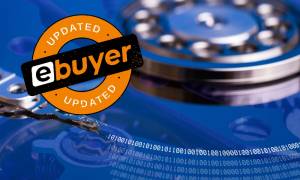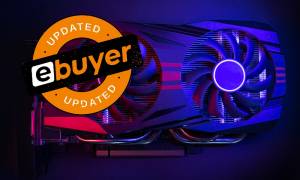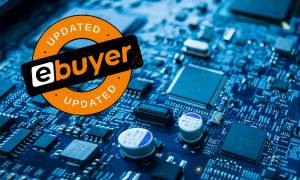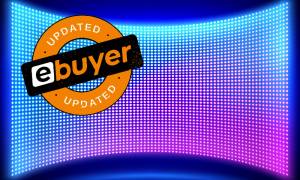The whole planet now relies on technology – specifically the internet – for much of its infrastructure and operations. So, for the average person during the last twenty-five years, having a computer in the home has grown from something of a novelty to being an absolute necessity. It’s no longer like living in an episode of Star Trek. It’s just normality! Your home PC is the portal to the wider world in so many important ways – serious and social.
In terms of the actual ‘box’ you need, for almost everyone considering their home computing options it’s going to be a toss-up between a desktop PC and a laptop. Each device has its own strengths, so in this article we’ll pick through the decision either way, and offer a few key pointers and things to look out for. Hopefully this will help you make an informed choice – the right choice to meet your needs. We will also address the question ‘Is a laptop or desktop PC the best computer for the home?’
Is a desktop PC better than a laptop?
There is sometimes a firm assumption that a desktop PC is just ‘better’ than a laptop. You might be convinced that’s the case, and not actually know what the reasons behind that feeling are. It’s probably the physical presence of it. For many people the fact that desktop PCs are bigger and seem more ‘solid’ and have to stay ‘in situ’ in a home office or workspace has ingrained the notion of them being the ultimate power when it comes to home computing.
In comparison, laptops are smaller and portable, so could come off as less powerful ‘satellite’ objects. Second class citizens of the computing world, if you will. If you work along this line of thinking, it’s very easy to see why you might assume a desktop PC to be the only real option for home requirements.
There are some key things to be aware of when you’re considering buying a desktop PC…
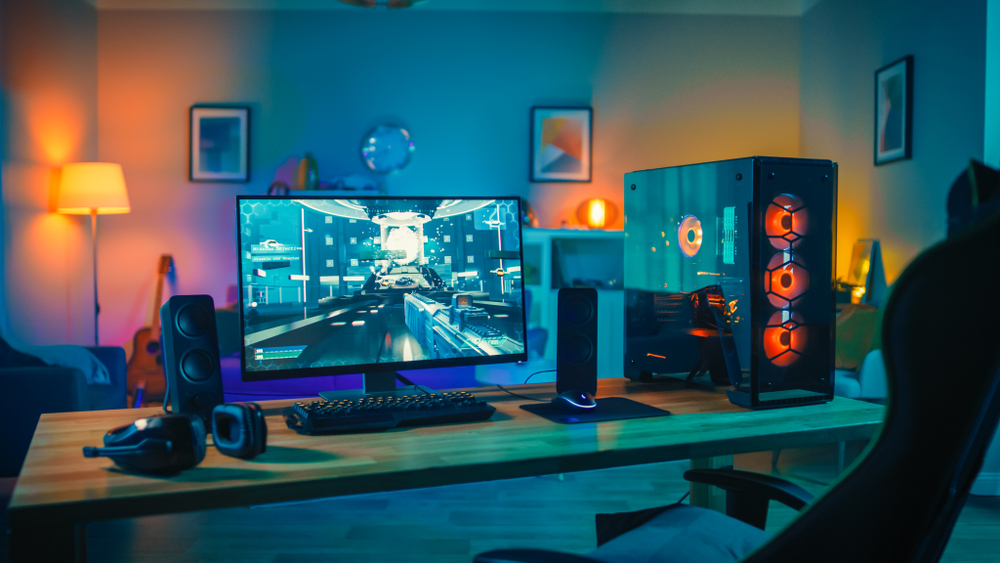
You can upgrade peripherals
When you opt for a desktop PC you will also need to invest in the necessary peripherals so that you can work (or play!) on it. We mean a monitor, a keyboard and a mouse. This doesn’t necessarily mean a huge extra cost. You will also be able to upgrade each of these as time goes by. Imagine getting ‘stuck in’ to your work on an expensive laptop and eventually realising that the large screen just doesn’t cut it for you. You’re kind of stuck. With a desktop PC you can upgrade to a larger and better monitor any time you like, as well as replacing the smaller peripherals with better versions. Perhaps more significantly than upgrading peripherals, with a desktop PC you can upgrade internal components.
You can upgrade components
One of the main strengths of a desktop PC is that you can upgrade it as you go along. It’s possible to replace components with newer and more powerful versions, so that the ‘power of your PC’ keeps apace with the times. Access to the components is a much easier process than it would be if you thought about upgrading a laptop.
Which components can you easily upgrade?
- Processor (CPU)
- Graphics card (GPU)
- RAM memory
- Storage
A good processor (CPU or Central Processing Unit) is crucial to your computer’s successful performance. It’s your PC’s brain, working with the other components to perform the tasks necessary for your computer to work. You can increase the performance capability of your desktop PC by swapping out the processor for a more powerful iteration or model. You can also increase performance by switching out the graphics card for something more capable. This is particularly important if you are going to be increasing the number of, or intensity of, visual based tasks – whether that’s video editing or streaming in 4K!
RAM is a component in your computer which allows short-term data access – ie. it’s the fast temporary data storage space a computer needs to access right now or very shortly. You can increase the RAM memory of your PC (for instance, upgrading from 8GB – generally, a good starting point for most users – to 32GB or above if you are going to be doing more intensive tasks such as video editing or graphic design work).
Increasing the storage capacity of your PC is also possible. SSDs (Solid State Drives) are optimal for your system’s boot drive (where the operating system is stored) but may lack storage capacity for documents and media files. Ideally, your documents and files ought to be stored on a separate drive from the operating system. This could also mean an external hard drive (so, in essence, a device which is useful for either desktop PC or laptop).
Obviously it’s imperative before changing these components this to check whether your motherboard can handle any particular new bits of kit.
Damage and replacement
This is, really, a confirmation of, or very close tie-in to, what we mentioned earlier about upgrading peripherals. If you accidentally damage the monitor of your desktop PC, or if it malfunctions, you can very quickly and easily replace it with another one. It’s pretty much a simple case of unplugging the old one from the PC tower, and plugging the new one in. Similarly for the keyboard and mouse.
However, because all of these things are inbuilt on a laptop, you’ll find that if any of them isn’t working for some reason, you’ll find you’re not able to either! Repair or replacement of these things on a laptop is a serious inconvenience.

Desktop PCs – in conclusion
If portability is not an issue for you, and the PC will stay where it’s put – at your home office desk or workspace – then a desktop PC could be the right choice for you. You’ll also be able to upgrade the components whenever you like, so your PC can become more powerful as you see fit to improve it.
Is a laptop better than a desktop PC?
The portability of a laptop is a massive plus. The convenience of having computer, keyboard, trackpad (essentially a mouse) and a monitor all built in to one unit which you can easily move around your house – or even take somewhere else – could make some people view the static desktop PC and necessary peripherals as a bit of a computing dinosaur. Any concerns over the power of laptops is fairly easily addressed too, as there are laptops available which have incredible specs.
Things to think about when picking a laptop
You’ve found a laptop that interests you. That’s great – but there are a few things you should consider before you take the plunge and open up your wallet. For a start: What type of processor does it have and how does it handle graphics?
An i5 processor is probably not going to cut it for the most ‘high-end’ work such as intensive video editing or particularly complex graphic design – but it will be enough processing power for admin work and social / entertainment activities. As the iteration of processor increases – i3 to i5 to i7 to i9 – so does the laptop’s capability. The higher / newer the iteration the faster the laptop will work at handling your inputs. In terms of graphics capabilities this will fluctuate from device to device, so check the individual specifications. You should pick a laptop with the appropriate capabilities for the tasks, functions and activites you have in mind.
Battery Life
Really, in terms of laptops this is tied in with portability. Your laptop is a device you could move around the house with, or take with you to a café or another place, but unless you have a power source to plug into you are going to eat away at your battery. You should look for a laptop that has a battery life which ensures not running out of ‘juice’ in the middle of something important. A laptop with at least six or seven hours of power on a full charge is the goal here. Check the specifications of the individual laptop you’re interested in – but remember that as you work on more things, have more apps and programs open, you will be using more power. Carefully consider this.

Screen Size
A decent screen size for a laptop, though still relatively compact, is 15” (or thereabouts). It’s a decent size for working on ‘the admin of life’ while you’re sitting on the sofa at home, though it also means a pretty good viewing area if you’re curled up in bed and want to watch something on the streaming service of your choice. Combining this with an HD display (or resolution above) will mean everything is much easier on the eye – even if you’re on a mammoth binge-watch of your favourite series!
Laptops – in conclusion
A brilliant choice for a home device, as a laptop is portable and can easily be taken from room to room with you as you move around your house. There are things to consider, and we’ve covered some of them in this blog, but if you don’t mind the possibility of having to upgrade sooner than you would if you invested in a desktop PC, then a laptop is a superb choice. Ebuyer stocks loads of laptops – take a browse.
Ultimately, the answer of whether a desktop PC or a laptop is the best computer from home is becoming increasingly redundant, as the specs of laptops are improving. In the end, the answer boils down to that age old cliché: It depends what you need it for? – and if that means portability and convenience it’s a laptop, or if it’s power and reliability it’s a desktop PC.









